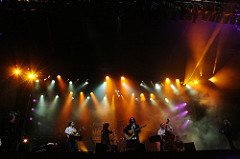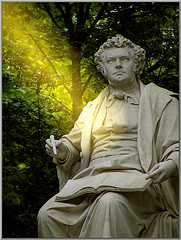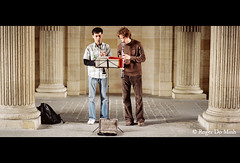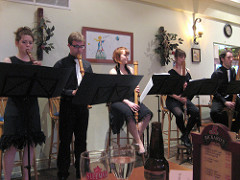by Manuel Marino | Flute
It is a common misconception that Wolfgang Amadeus Mozart had a dislike for the flute. This misconception is held not only by untrained musicians but also by well-educated and trained musicians. The reason for this mistaken belief is attributed to Mozart’s flute quartets. In a letter to his father, he expressed frustration, stating, “It is not surprising that I have not been able to complete them, for I never have a single quiet hour here. I can only write at night, so I cannot get up early either; besides, one is not always in the mood for working. I may, to be sure, scribble down something for the whole day long, but a composition of this kind goes out into the world, and naturally, I do not like to have reason to be ashamed of my name on the title page. Moreover, you know that I become very weak when I am obliged to write for an instrument which I cannot bear. Hence, as a diversion, I compose something else…” (February 14th, 1778).
While this letter may seem to suggest a hatred for the flute, the reality is that Mozart was simply frustrated with the circumstances. His benefactor, … ...Read the rest.
“Mozart flute quartet in A major: The history and performance practice”
by Manuel Marino | Flute
The Magic Flute was Mozart’s final opera, written in 1791, the same year of his death. It had its first performance at the Theater auf der Weiden in Vienna.
The idea for The Magic Flute came about through the friendship between Mozart and Emmanuel Schikaneder, an actor, singer, and the manager of the Theater auf der Weiden, which was gaining popularity among the Viennese middle classes. Schikaneder suggested to Mozart that a pantomime-style comic opera would be a crowd-pleaser and potentially profitable for both of them. Mozart, facing financial strain at the time, readily agreed.
Mozart worked on the opera during the summer of 1791, which helped improve his spirits concerning his financial troubles. However, soon after starting work, he received a commission under mysterious circumstances that sparked much speculation. An anonymous request was sent to Mozart, asking him to write a requiem mass. The commission came with a condition that Mozart should not attempt to discover the identity of his patron. Despite the unusual nature of the commission, Mozart decided to accept it, considering the lucrative payment. To his surprise, Mozart also received a commission to write an opera to celebrate Emperor Leopold II’s coronation as King … ...Read the rest.
“Die Zauberflote – The Magic Flute”
by Manuel Marino | Music

Photo by miss_rogue
The best music festivals in the world are unique events that have the power to bring together people from various countries to create amazing moments together. Besides the fact that they provide a great opportunity to meet people from different nations and continents, they also offer the perfect setting to listen to music. It is undeniable that music sounds even better when experienced in a specially designed atmosphere and accompanied by good friends.
Almost every region of the world hosts musical events that cater to different types of music or artistic expressions. No matter how niche or unique your taste in music may be, there is bound to be a festival dedicated to it. For example, for those who love classical music, opera, drama, or symphony, there are numerous festivals they can attend. Some notable examples include the White Nights Festival in St. Petersburg, Russia, the Salzburg Festival in Austria, the Edinburgh International Festival in Scotland, and the Savonlinna Opera Festival in Finland.
The Salzburg Festival, which first appeared in 1920, centers around commemorating the death of Wolfgang Amadeus Mozart. The White Nights Festival in Russia encompasses a variety of activities, from theater performances to ballet. The … ...Read the rest.
“Music Festivals Get People Together”
by Manuel Marino | Arts, Music

Photo by Walter A. Aue
Dying at thirty-one is a tragedy. It often signifies a life cut short, unfulfilled. However, that cannot be said about one of the music world’s greatest composers. The incredibly talented Austrian composer Franz Schubert did pass away at thirty-one, but despite his early demise, he has emerged as one of history’s most influential musical forces. His compositions appeal not only to classical music enthusiasts but also to music lovers worldwide.
Antonio Salieri was a discerning judge of talent. After all, he knew of Mozart’s genius and eventually became consumed by it. So when he recognized the talent of another musician, it carried weight. He saw in one young man a future master. This is not surprising considering that as a teenager, Schubert was already composing pieces that caught the attention of some very important figures.
Schubert was no one-hit wonder. His contributions to music spanned his entire life. By the age of twenty-three, he had already composed two operas, ‘Die Zwillingsbruder’ and ‘Die Zauberharfe’. And his talent extended beyond opera. Just look at his symphonies, sonatas, string quartets, and lieder.
The magnificent ‘Symphony No. 8 in B Minor’ is considered one of Schubert’s most famous … ...Read the rest.
“A Look Back On Franz Schubert”
by Manuel Marino | Arts, Culture
 Gunnar Colding is a former professional cellist who for 25 years has been employed by chamber orchestras as well as symphony orchestras of Sweden. This is an exceptional article he wrote for us.
Gunnar Colding is a former professional cellist who for 25 years has been employed by chamber orchestras as well as symphony orchestras of Sweden. This is an exceptional article he wrote for us.
To the audience of music
There was recently given a concert in New York mainly consisting of works by Mozart. When a soprano afterwards would perform some songs by Webern (music soon a hundred years old but Atonal) the audience BOOED her out! OPUS, the leading musical magazine of Sweden, therefore put the question, why Swedes don’t boo at concerts.
The short answer is simple. They are brought up not to, and whoever violates the pattern therefore risks “making a fool of himself”. The longer answer is somewhat more complicated, but still logic to those who have the energy to look a little deeper into the crystal ball.
All avant-gardists who have advanced to some level live in some kind of symbiosis with the culture knowledgeables of the media. Together they form a hype and a trademark. This trademark is in most cases equivalent to the personal name of “the artist”. After a number of times in the limelight they are suddenly celebrities.
Then it’s especially important … ...Read the rest.
“To the audience of music”


 Manuel is a passionate, driven, and techsavvy AV technician,
Manuel is a passionate, driven, and techsavvy AV technician, 





Recent Comments